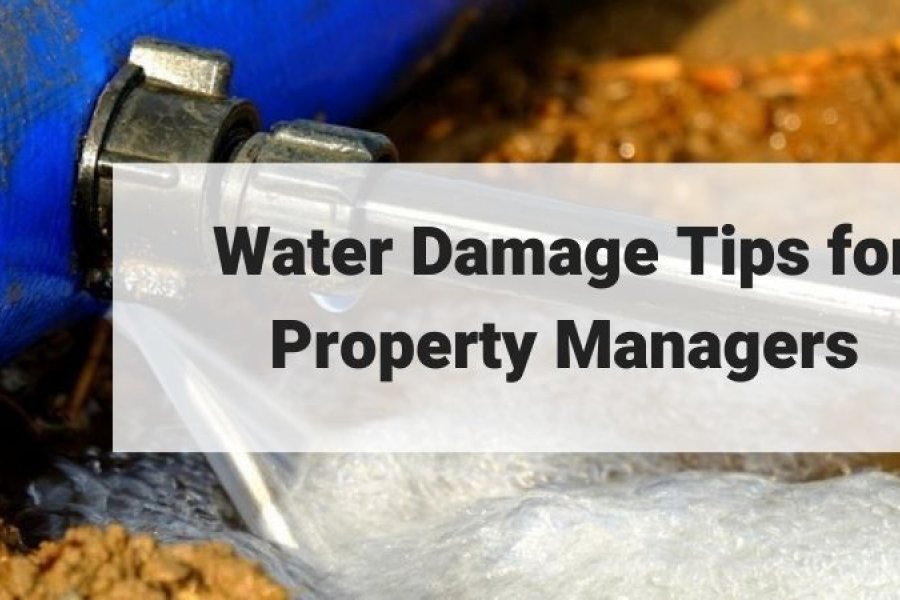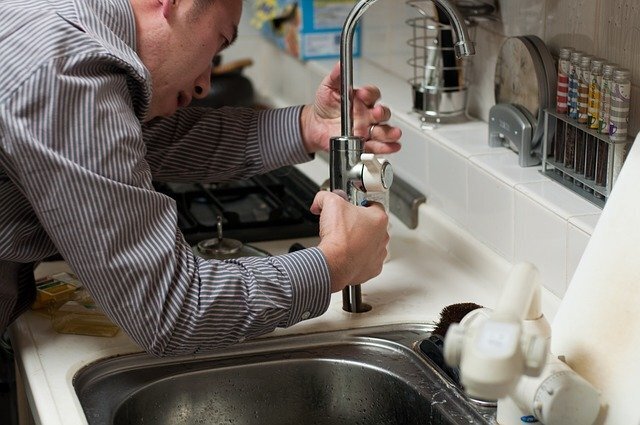
In property management, there are many valuable tasks that you will need to do regularly. As a landlord, you are responsible for the property, ensuring it is habitable and safe. Checking the property for regular wear and tear is a way to avoid any further damage from occurring - such as bad plumbing and pipe bursts.
On the other hand, tenants are responsible for damages due to their actions. Such issues may be a toilet or bathtub overflowing due to clogging, all of which the tenant could have prevented. Tenants are allowed to repair the damage that occurred. However, if they are inexperienced and attempt to make repairs, you as the landlord could be responsible if not fixed properly.
What To Do If Damage Occurs?
The most common damage to property that occurs is water-related. While insurance may cover it, it’s not guaranteed until an adjuster inspects a claim. Take photos for documentation purposes and send them to your adjuster as proof and reliable evidence. The sooner you reach out to your insurance company, the quicker the restoration process can begin. Ignoring water damage can cause more harm than good to your property’s structural integrity.
How To Maintain Your Property
Commercial property managers need to consider water damage prevention as part of their overall disaster preparedness plans. Water damage can cause extensive property damage and business interruption, which is why it makes sense to prevent water damage before it happens.
Here are some tips that commercial property managers can incorporate into their disaster preparedness plans to help prevent water damage:
Perform regular inspections

Water damage can occur without tenants even realizing it. Water leaks and flooding, for example, may happen after hours when the tenant is not present to notice a problem or provide a report. Water damage can also result from a faulty appliance that goes unnoticed until extensive water damage has occurred. Check the:
- Exhaust fans located in kitchens and bathrooms.
- Window frames and windows.
- Ceilings, walls, and floors around appliances and water heaters.
- Overhead gutters.
- Kitchen and bathroom sink cabinets.
- Damaged or missing roof tiles.
- HVAC drain lines, trays, and ductwork.
Educate your tenants
Provide your tenants with valuable information on how to spot possible water damage and ways they can avoid it. It will be an extra precaution if you do not respond fast enough. Inform them about:
- The signs of water damage.
- Ways to prevent water damage.
- The dates you plan to come for an inspection.
- What to do if a leak forms.
Action if you notice water damage
If water damage is spotted and there is still standing water present, remove excess water from the site. Once you complete this, send documentation of the incident to your insurance company and file a claim with an adjuster. Seeking help from a professional water damage restoration company is key to assessing and revitalizing the property back to pre-loss conditions.
Business Continuity
If water damages your building, note how you intend to restart operations in your disaster preparedness plan. Handling water damage can be troublesome for property managers, but utilizing specific tools can be vital to yourself and your tenants.
- Check to make sure your property insurance policy covers multiple types of water damage.
- Maintain a list of local vendors.
- Setup temporary living arrangements for tenants who must temporarily move out.
- Assist with moving tenants' property away from damaged areas.
Tips On Dealing With Property Water Damage

Water damage is one of the most challenging forms of property damage that can happen to your organization. Water can wreak havoc on a building’s infrastructure, floors, ceilings, and more. It’s crucial to take steps against water damage to protect your investment and the wellbeing of other buildings’ occupants.
Water damage can go unnoticed for an extraneous amount of time. It’s essential to your property’s structural integrity that water damage is spotted and cleaned up as soon as possible to prevent further damage from occurring. Following a regular inspection routine will help you take organized measures to prevent water damage.
Whenever water damage forms, remember to:
- Document the damage - Take plenty of photos and write down what you see immediately. That is where you can create a claim through your insurance company.
- Tenants - Assist tenants in moving their property.
- Seek property water damage restoration - The extent of damage can be unpredictable, therefore seeking a professional company to restore the site to pre-loss conditions is ideal.